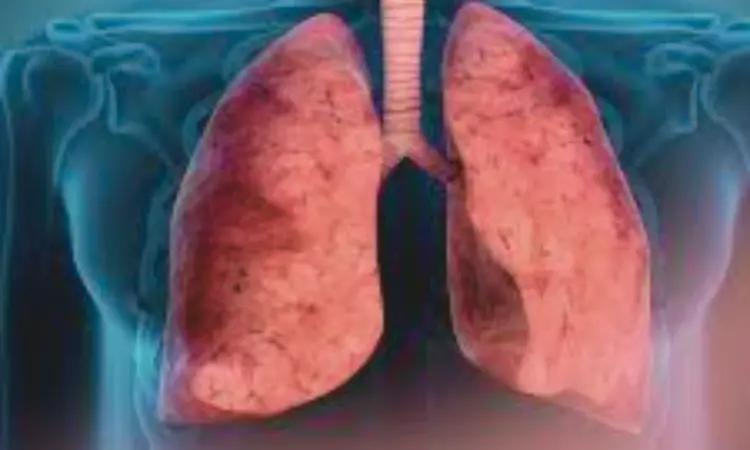- Home
- Medical news & Guidelines
- Anesthesiology
- Cardiology and CTVS
- Critical Care
- Dentistry
- Dermatology
- Diabetes and Endocrinology
- ENT
- Gastroenterology
- Medicine
- Nephrology
- Neurology
- Obstretics-Gynaecology
- Oncology
- Ophthalmology
- Orthopaedics
- Pediatrics-Neonatology
- Psychiatry
- Pulmonology
- Radiology
- Surgery
- Urology
- Laboratory Medicine
- Diet
- Nursing
- Paramedical
- Physiotherapy
- Health news
- Fact Check
- Bone Health Fact Check
- Brain Health Fact Check
- Cancer Related Fact Check
- Child Care Fact Check
- Dental and oral health fact check
- Diabetes and metabolic health fact check
- Diet and Nutrition Fact Check
- Eye and ENT Care Fact Check
- Fitness fact check
- Gut health fact check
- Heart health fact check
- Kidney health fact check
- Medical education fact check
- Men's health fact check
- Respiratory fact check
- Skin and hair care fact check
- Vaccine and Immunization fact check
- Women's health fact check
- AYUSH
- State News
- Andaman and Nicobar Islands
- Andhra Pradesh
- Arunachal Pradesh
- Assam
- Bihar
- Chandigarh
- Chattisgarh
- Dadra and Nagar Haveli
- Daman and Diu
- Delhi
- Goa
- Gujarat
- Haryana
- Himachal Pradesh
- Jammu & Kashmir
- Jharkhand
- Karnataka
- Kerala
- Ladakh
- Lakshadweep
- Madhya Pradesh
- Maharashtra
- Manipur
- Meghalaya
- Mizoram
- Nagaland
- Odisha
- Puducherry
- Punjab
- Rajasthan
- Sikkim
- Tamil Nadu
- Telangana
- Tripura
- Uttar Pradesh
- Uttrakhand
- West Bengal
- Medical Education
- Industry
Researchers Report Rare Case of Kartagener Syndrome with Minimal Change Disease in a 24-year-old Woman

China: In an unusual clinical presentation, Hua Zhou, Department of Nephrology, Shengjing Hospital of China Medical University, Liaoning, China, and colleagues have reported a rare case of a young woman diagnosed with Kartagener syndrome who also developed minimal change disease, a form of nephrotic syndrome. According to them, the case is considered the first documented instance of such a combination, highlighting the need for awareness and tailored treatment approaches when multisystem disorders co-exist.
The case, published in the Journal of Medical Case Reports, concerns a 24-year-old woman from China who sought medical attention with complaints of foamy urine lasting two weeks and swelling around her eyelids and legs for one week. On evaluation, she was diagnosed with nephrotic syndrome, and further investigations pointed to a much rarer underlying condition.
Imaging studies revealed features consistent with Kartagener syndrome — a genetic disorder characterized by a classic triad of bronchiectasis, chronic sinusitis, and complete reversal of internal organ positioning (situs inversus). The patient had a known history of recurrent respiratory tract infections and dextrocardia from childhood, which aligned with the diagnosis. A renal biopsy later confirmed the presence of minimal change disease, explaining the proteinuria and low serum albumin levels.
Interestingly, the patient responded well to conservative therapy. She was managed with anti-inflammatory medications to address the underlying infection and was started on telmisartan, an angiotensin receptor blocker, to reduce protein loss through urine. Despite not receiving corticosteroids or immunosuppressants — standard treatments for minimal change disease — her condition improved significantly. At a one-month follow-up, her urinary protein levels dropped below 1 gram per day, and her serum albumin normalized. A year later, she remained in remission without any relapse or further treatment.
Kartagener syndrome, a subset of primary ciliary dyskinesia, results from structural or functional abnormalities in motile cilia, leading to impaired mucociliary clearance. It affects multiple systems, including the respiratory tract and reproductive organs, and can present with varied clinical features depending on the organs involved. The connection between Kartagener syndrome and renal diseases is extremely rare, with only a few prior reports linking it to IgA nephropathy, focal segmental glomerulosclerosis, and other glomerulopathies.
The exact mechanism linking Kartagener syndrome to glomerular disease remains unclear. Some hypotheses suggest that immune dysregulation or chronic systemic inflammation could play a role. In this case, the absence of steroid therapy yet successful remission raises the possibility of spontaneous resolution following infection control.
"Clinicians should consider a thorough renal evaluation in patients with Kartagener syndrome who present with features suggestive of nephrotic syndrome. In atypical cases, diagnostic confirmation may be aided by nasal mucosal biopsy or genetic testing to detect underlying ciliary dysfunction," the authors emphasized.
"This case contributes to the limited body of literature on the coexistence of renal pathology in Kartagener syndrome and may serve as a valuable reference for guiding clinical management in similar presentations," they concluded.
Reference:
Huang, Q., Luan, J. & Zhou, H. Kartagener syndrome with minimal change disease: a case report. J Med Case Reports 19, 165 (2025). https://doi.org/10.1186/s13256-025-05192-4
Dr Kamal Kant Kohli-MBBS, DTCD- a chest specialist with more than 30 years of practice and a flair for writing clinical articles, Dr Kamal Kant Kohli joined Medical Dialogues as a Chief Editor of Medical News. Besides writing articles, as an editor, he proofreads and verifies all the medical content published on Medical Dialogues including those coming from journals, studies,medical conferences,guidelines etc. Email: drkohli@medicaldialogues.in. Contact no. 011-43720751


